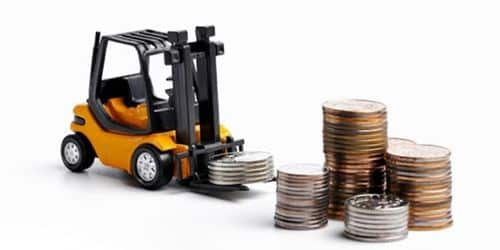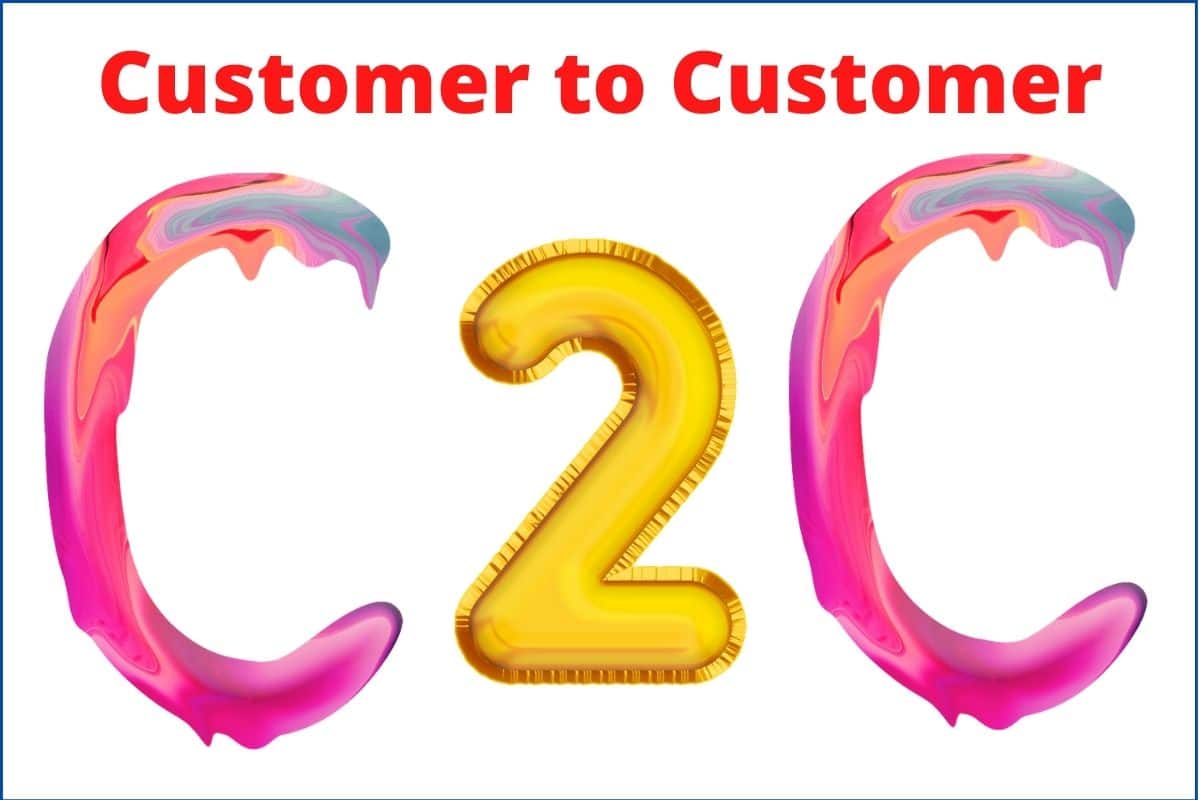Equipment loans and leases can be a great resource for new small businesses, so long as the company receiving the loan or lease has a modest annual revenue minimum and a short minimum time in business. You should select a lender who offers competitive interest rates and flexible repayment arrangements. Providers with lower yearly income and shorter business history requirements won out as the best equipment loans for new enterprises. However, we selected several lenders who have lower minimum credit score criteria as well as others who cater to consumers with lower FICO scores. Borrowers with poor credit ratings will likely be subject to higher rates and fees, while those with better ratings may enjoy more favorable terms.
What Is a Business Equipment Loan?
To put it simply, equipment financing helps businesses acquire (or pay for the use of) essential machinery and tools that are essential to their day-to-day operations and future expansion. Almost anything, from IT gear and air conditioning services to heavy machinery and vehicles, is available for lease. In order to boost cash flow and deal with regular business costs, a loan for equipment may be a viable option.
Small Business Loan For Equipment
The cost of business equipment might vary widely. Smaller expenses, such as regular maintenance, can quickly mount up as well. Funding the purchase or replacement of business equipment is one approach to reducing the out-of-pocket expense involved.
Small business owners can take advantage of equipment financing, also known as an equipment loan, to purchase, upgrade, or replace important or heavy equipment such as restaurant refrigerators, laptops, automobiles, and commercial copy machines. In order to keep your company’s cash flow from being severely impacted, consider applying for an equipment loan. Even companies with low credit scores may qualify for several types of equipment financing. The best equipment loan sources for a small business include:
#1. Smarter Finance USA
We recommend Smarter Finance USA to new small businesses in need of an equipment loan or lease because of their competitive interest rates, flexible repayment terms (up to seven years), and low minimum time in business need. However, having only six months of operation under your belt makes this a viable option for new ventures. You can get a loan with terms as long as you need it and at a rate that won’t break the bank.
Furthermore, equipment loans and leases from Smarter Finance USA are available to small businesses with personal credit scores of at least 600 and down payments of at least 5%. Additionally, Smarter Finance USA provides a way to submit your information in case you are interested in applying but are unable to do so directly through its website.
#2. eLease
Equipment leases of up to $500,000 are available from eLease, for terms of up to five years. Since there is neither a minimum time in business nor a minimum income criterion, eLease is a possibility for new businesses who are short on funds or have poor credit in acquiring equipment loan. The application process is highly individualized.
#3. Currency Finance
Currency Finance is an excellent option for new small businesses without a lot of capital that have good credit but are short on cash. But the rates of interest could be greater. Loans from Currency Finance can be processed and disbursed in as little as one business day, making them a good choice for those who require urgent cash.
What Are the Advantages and Disadvantages of Business Loan for Equipment?
Pros
#1. Get Funding for Purchasing, Repairing, or Leasing Machines
It’s possible that even if you have a thriving business, you still won’t have enough money to invest in necessary equipment. A business equipment loan is an ideal idea since it allows you to get the capital you need to buy the necessary equipment.
Moreover, you can avoid waiting until you’ve saved up enough money by taking out a loan, particularly for the purpose of buying or fixing equipment for your business.
Having this money on hand can help your company’s bottom line, since delaying the purchase, lease, or repair of necessary equipment can have a devastating effect on annual income. If the oven at your restaurant breaks, for example, you’ll need to get it fixed or replaced as soon as possible so that you can keep serving customers.
#2. Boost Future Revenue for Your Company
Getting a loan for necessary equipment could do wonders for your business efficiency. If you run a manufacturing business, for instance, investing in more machinery could help you fulfill orders more quickly. It’s possible that you’ll be able to expand your consumer base, which will ultimately increase your profits.
In addition, if your business qualifies for an equipment loan, you may put that money to work right away, potentially increasing your profits.
#3. No Need for Additional Collateral
You may need to pledge an asset you already own, such as a piece of real estate or a car, in order to secure a term loan. With a business equipment loan, however, this is usually not the case.
Lending alternatives and online financial institutions typically accept the equipment itself as collateral. As a result, you reduce the potential damage from any failures, which is a huge plus.
#4. Budget for Your Purchase Comfortably
Any business owner will tell you that keeping enough cash on hand is a constant worry, and that new equipment purchases only make that worry more complex. Instead of having to come up with all of the money at once to pay for new machinery, you can use an equipment loan to spread out the payments.
Take, as an illustration, the $100,000 price tag on a big format printer for use in many offices. With a 10% down payment and a 6% interest rate spread out over 5 years, you might be able to finance necessary equipment. That works out to a down payment of $10,000 and monthly payments of around $1,700 for the course of the loan’s five-year duration. If you didn’t get a business equipment loan, you’d need to come up with $100,000 straight away to pay for the equipment outright.
Cons
#1. Restrictive
Equipment financing implies that the loan will be used solely for the purchase of equipment. Consequently, you would not be allowed to use the money from your equipment loan for anything else, such as salaries, rent, or other costs. This guide to business lending explains all the various sources of funding that can be used.
#2. Overall, Costs Are Higher.
Interest on a loan makes financing equipment more expensive than just buying it outright. It’s fantastic if you’re able to achieve that. Nonetheless, most companies simply cannot afford to do so.
#3. The Tools Are Yours to Maintain
This indicates that you are responsible for paying any and all fees associated with the equipment’s maintenance in the event that something goes wrong with it. Having this ability is necessary in order to operate the apparatus.
Can I Get a Loan for Equipment?
Depending on the equipment finance firm you go through and your company’s credit history, you may be able to secure a loan for up to the full purchase price of the equipment you want to buy. Pay back the loan plus interest at the end of the loan repayment term.
Which Alternative Lender Is Best for Equipment?
Crest Capital meets the needs of a wide range of small business borrowers thanks to its quick funding, competitive interest rates, and flexible equipment financing choices. Because of these factors, we recommend Crest Capital as the best alternative lender for financing machinery.
What Is the Sba Loan Rate?
For new and existing small businesses alike, U.S. Small Business Administration (SBA) loans can be a valuable source of low-interest capital. The application process for SBA loans can be time-consuming and competitive, but the loans themselves are much more cost-effective than alternative options.
Before you apply for funding, familiarize yourself with these interest rates for Small Business Administration loans:
| Loan Programs | Rates |
| SBA 7(a) (variable rates) | 7% – 9.5% |
| SBA 7(a) (fixed rates) | 9.75% – 12.75% |
| SBA Express | 9.25% – 11.25% |
| CDC portion of CDC/504 | 4.922% – 5.20% |
| SBA Microloan | 6%-9% |
| SBA Economic Injury Disaster Loan (EIDL) | 2.75% – 3.75% |
There are a lot of variables that affect the interest rate on an SBA loan, such as the loan’s length, amount, and program. Rates offered by the Small Business Administration (SBA) are often capped at a certain percentage point (or percentage points) over the prime, Treasury, or another base rate.
Furthermore, interest rates can be fixed or variable, and they can be negotiated between the lender and the borrower or determined by the SBA, depending on the type of loan program. As a result, the optimal financial products for small businesses are not uniform among borrowers and loan categories.
How To Get A Business Loan For Equipment
You’ll eventually need to buy, upgrade, or replace your business-related equipment, whether you’re laying a road or creating software. The cost of doing so out of pocket can be too high unless you’re fortunate enough to have a lot of money on hand. You will need to look for funding if you don’t have the luxury of time. When such an event occurs, a business equipment loan should be taken into account. Here is how to get a business loan for equipment.
#1. Check With Your Bank Or Credit Union
When seeking loans, it’s best to start with the financial institutions with which you already have a solid working relationship. As a result of their regular interactions with small businesses, they may be in a position to provide financing tailored to the unique needs of specific pieces of machinery.
Even if you only have a basic savings and checking account with them, you presumably already have a working connection with your local financial institution. Since minimizing loss is the name of the game in finance, being a known quantity to the bank can result in preferential rates.
Having your financial situation publicized could backfire, however, if you have a history of overdrafting or other cash flow problems.
#2. See If The Vendor Offers A Loan
Since the economic downturn, many people and businesses have had trouble obtaining loans. Equipment manufacturers don’t have the same leeway as banks when it comes to financing. They lose money if they don’t make any sales.
It just so happens that a good percentage of these companies also provide financing options. Automakers like GM have specialized financing divisions that work with local dealers to provide customers with leases and loans.
#3. Use an Online Lender
Even while many online lenders focus on working capital loans, a respectable number of them also provide equipment financing, such as equipment loans. Some financial institutions focus solely on equipment financing.
If you don’t mind purchasing directly from the lender, these businesses often have access to inexpensive rates on new and used equipment thanks to the ties they’ve cultivated with vendors and manufacturers.
How Does an Equipment Line of Credit Work?
A small business loan that only requires you to pay interest on what you really use is an equipment line of credit. After you have paid off the credit, you are also permitted to use it again. Like a credit card, you have a pre-approved spending limit that you can use whenever you need it rather than receiving a single sum.
What Is Classified Loan Equipment?
A “classified loan” is a bank loan that is in danger of default. Classified loans have unpaid interest and principal outstanding, but don’t necessarily need to be past due.
What’s the Difference Between Business Equipment Loans and Equipment Financing?
Financing for heavy machinery is distinct from financing for other types of equipment. The latter category can contain a wide range of business tools, including computers, furnishings, filing cabinets, printers, restaurant supplies, and even cars. On the other hand, heavy equipment finance explicitly refers to construction machineries like forklifts, bulldozers, cranes, cement mixers, loaders, or other huge machinery that requires a special permit or training to operate.
Construction, building maintenance, and excavation firms, as well as ice rinks, farms, food manufacturing firms, and healthcare facilities, are examples of industries that use heavy machinery.
How Do I Know Whether I Need a Business Equipment Loan?
Consider heavy equipment loans if you require equipment that is essential to your everyday operations but lacks the funds to purchase it. If you wish to spend money on a specific growth project, such as upgrading your office or employing a new administrative director, you might also want to seek a loan. You may be able to invest more money in a part of your company that has a higher chance of success by financing large pieces of equipment.
What Do I Need to Qualify for a Heavy Equipment Loan?
Because the equipment serves as security, heavy equipment loans are typically easier to qualify for than other business loans. Additionally, rather than being based merely on your income or company credit score, the amount you borrow is directly correlated to the cost of the equipment you’re interested in purchasing.
Every lender is different, but you should be able to get a heavy equipment loan with reasonable rates if you’ve been in the company for at least a year, have strong credit, or have a steady stream of income. By making a down payment on the equipment, you can typically qualify even with poor credit or low cash flow.
Can I Get Heavy Equipment Financing From a Bank?
Yes. Large and small banks both provide loans for heavy machinery, but you might need a better credit rating or proof of income to be approved. The advantage is that bank loans often have longer durations and cheaper interest rates. If you have the patience to wait a few months for a response, it’s worth looking into given the superior heavy equipment lending rates and other bonuses.
Can I Get an Equipment Loan With Bad Credit?
For heavy equipment loans, you don’t need to have outstanding credit. If you can demonstrate that you have strong cash flow or income, many online lenders will accept less-than-perfect credit ratings. If your score is below 620, however, you may have difficulty getting approved (and may receive worse heavy equipment loan rates).
What Are the Interest Rates for a Business Equipment Loan?
Your credit score, cash flow, company experience, the type and condition of the equipment, and whether or not you put down a deposit all affect the interest rates for financing heavy equipment. You can be required to pay higher interest rates if the equipment you need is less expensive, but more expensive equipment might result in cheaper rates. Depending on the lender, heavy equipment loan rates often range from 8% to 30%.
What Are the Term Lengths for Financing Heavy Equipment?
The length of the terms varies depending on the lender, although they often coincide with the equipment’s expected life. For instance, if your new bulldozer is expected to last 10,000 hours before needing maintenance, your term could be five years long provided you utilize it at least 40 hours every week.
How Fast Can You Get Funding for an Equipment Loan?
You could have to wait several months to receive the funds if you use a bank. If you are authorized for heavy equipment finance, on the other hand, an internet lender or financing firm often offers you the money within a few days.
Conclusion
Loans for business equipment normally have a fixed duration of roughly five years, though some lenders may provide longer terms. You must make monthly principal and interest payments on an equipment loan, which might exceed 28%. Some lenders require a down payment, which can reduce the total amount owed and potentially even the loan’s duration.
Business Loan for Equipment FAQs
What are the benefits of equipment financing?
You can finance equipment, software, installation, training, maintenance, and other services through equipment financing. During this time, companies may upgrade equipment or add services.
Why do companies buy new equipment?
When you upgrade or get new machinery for your company, you boost output and efficiency.
What happens if the loans are not or Cannot be paid off?
As fines, fees, and interest accrue on your account, your total debt will increase. Your credit scores will decline as a result.
- BUSINESS LOANS BAD CREDIT: Definition and How to Get It
- SBA EXPRESS LOAN: Online Application, Programs, Requirements for any Business(
- SBA 504 LOAN REQUIREMENTS: Interest Rates for Startups and; Rental Property
- COMMERCIAL REAL ESTATE LOANS: Types, Rates and Requirements






